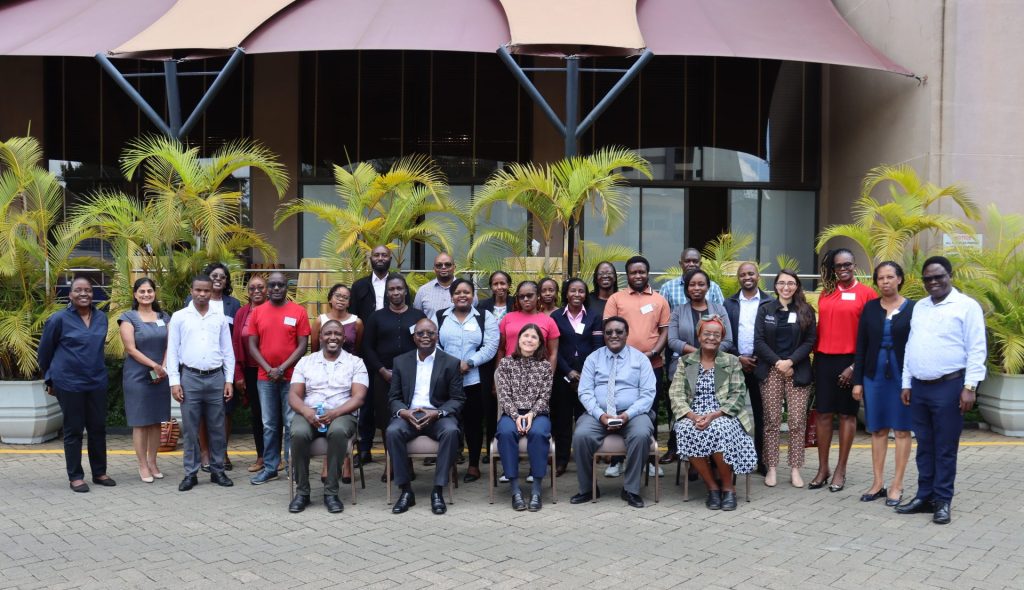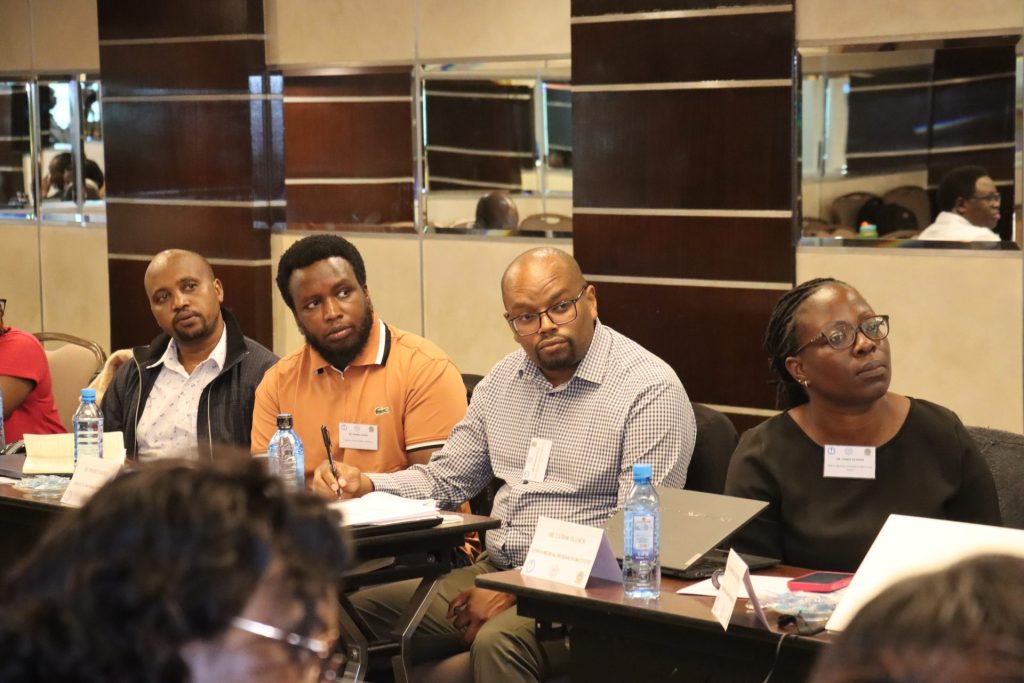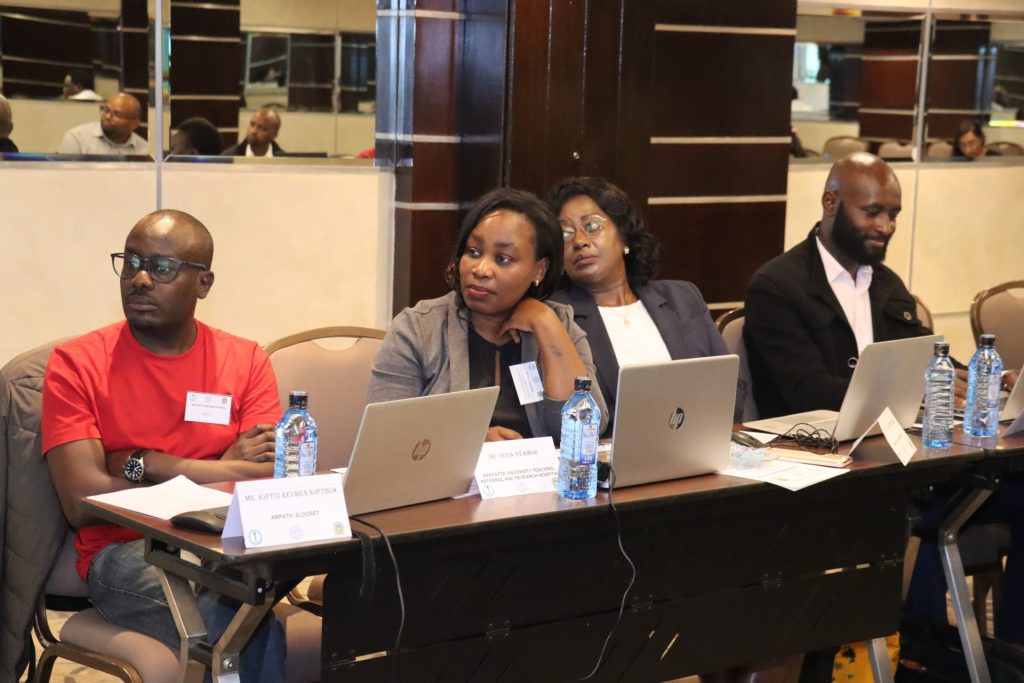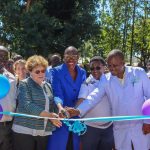
KEMRI Joins Global Study to Test Once-Monthly Oral HIV Prevention Drug
November 11, 2025
KEMRI Hosts Ugandan Team for Knowledge and Grants Management Exchange
November 12, 2025SITAWI Grant Writing Workshop Strengthens Research Capacity
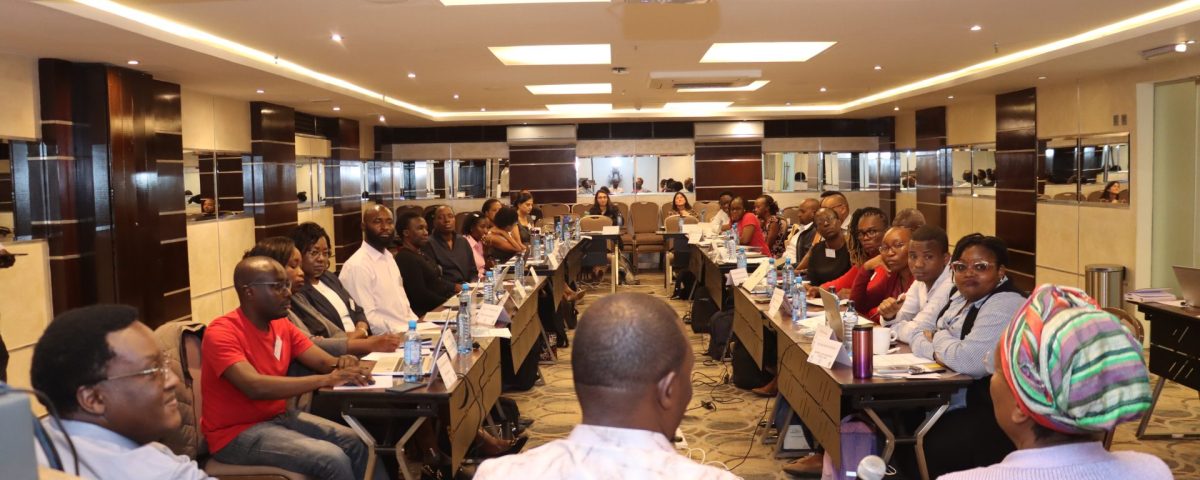
By Gideon Kirui
The Institute, in its relentless pursuit of research excellence, successfully conducted a two-day grant writing workshop under the SITAWI programme to equip researchers with grant writing skills.
Held from 3rd to 4th November 2025 in Nairobi, the event brought together aspiring researchers and multiple-time grantees from institutions of higher learning, healthcare facilities, and research organizations for highly informative and interactive sessions curated round a mutual objective: to excel in grant writing.
The engagement offered practical guidance on identifying funding opportunities, structuring proposals, and articulating strong research aims and methodologies. Facilitated by experienced grant writers and reviewers, including the three Multiple Principal Investigators (MPIs) KEMRI’s Senior Principal Clinical Research Scientist, Prof. Elizabeth Bukusi, Associate Professor at Jomo Kenyatta University of Agriculture and Technology (JKUAT), Prof. Kenneth Ngure, and Professor at the University of Washington in the Departments of Global Health, Epidemiology, and Medicine, Prof. Carey Farquhar.
The workshop included hands-on exercises, peer review sessions, and a panel discussion featuring successful grantees who shared valuable insights and lessons learned. Participants also had the opportunity to refine their own concept notes with direct feedback from the mentors.
During the opening sessions, participants were taken through grant writing best practices that emphasized effective time management and the requisite professional disposition, aimed at enhancing their prospects of securing competitive research grants
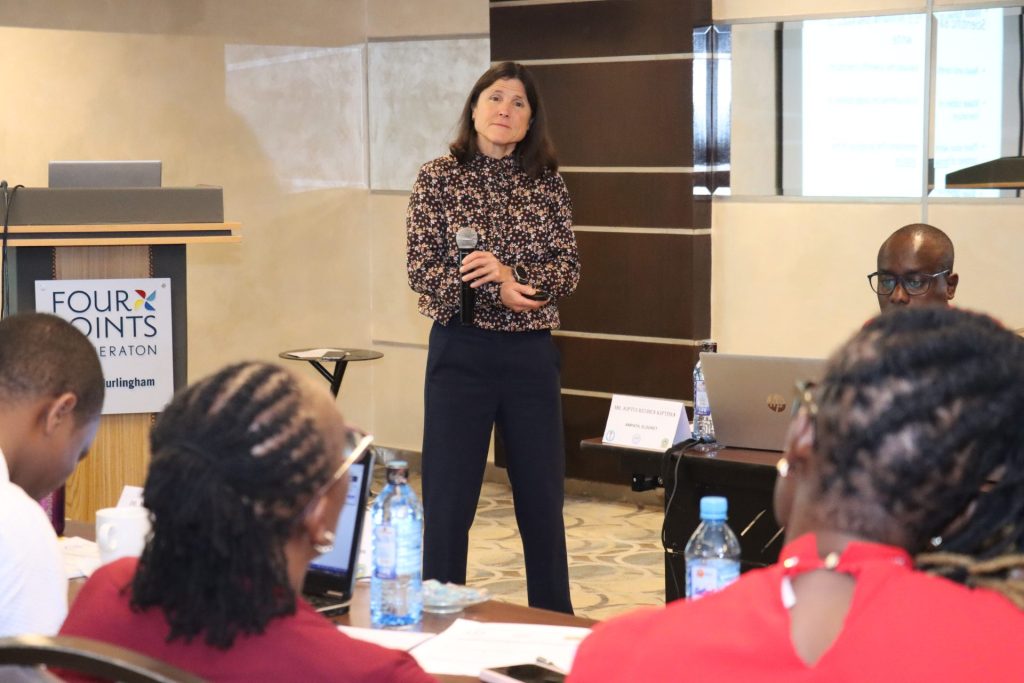
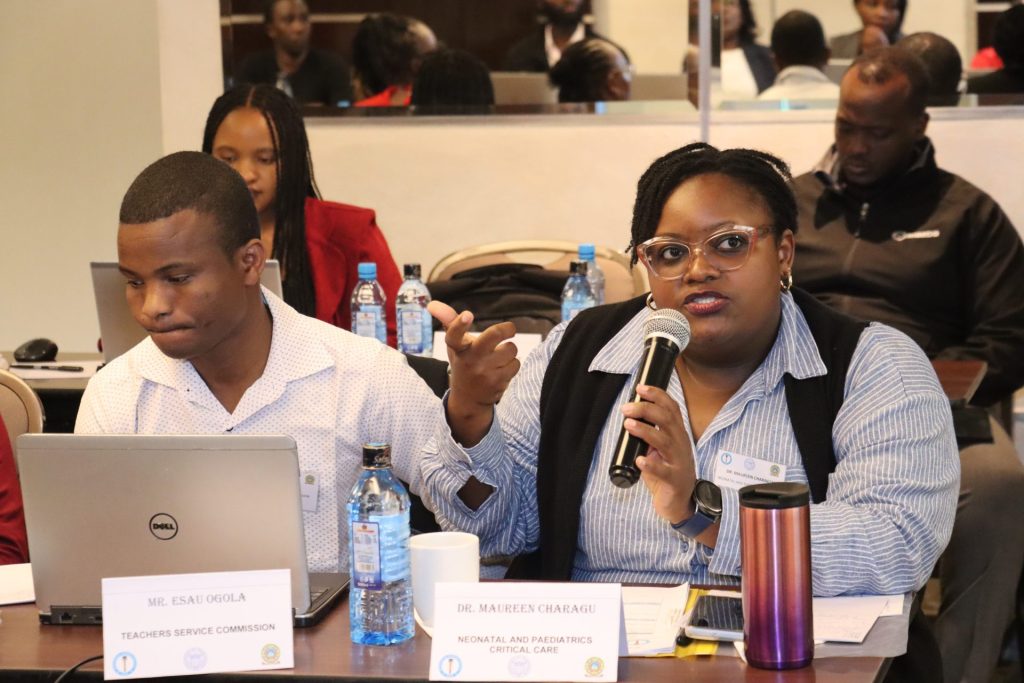
Prof. Farquhar, in her presentation on successful grant writing, underscored the need to be cognizant of grant proposal requirements, including donor expectations. She explained that grant writing, being functionally distinct from other types of writing like the process of producing a manuscript, demands a well-thought-out plan.
She described it as a premeditated approach, deliberately designed to exploit emotions and appeal to reviewers, while meeting the grant applicant’s and project’s objectives.
“In grant writing, you aim to be both persuasive and convincing,” said Prof. Farquhar to a room full of attentive participants who occasionally made notes.
Later in the programme, during a moderated and lively panel discussion, the panelists, while sharing their experiences, stated that success is critically dependent on the team. They recommended the participants ensure that every team member possesses the complementary competencies essential for an effective team, offering a reminder that research is a collective effort, not an independent endeavor. This includes incorporating someone with administrative expertise to support the scientists in handling administrative duties during the process of drafting a grant proposal.
They further observed that engaging institutional ethics committees and management to provide guidance and issue letters of support not only enhances the odds of grant success but also streamlines the entire process.
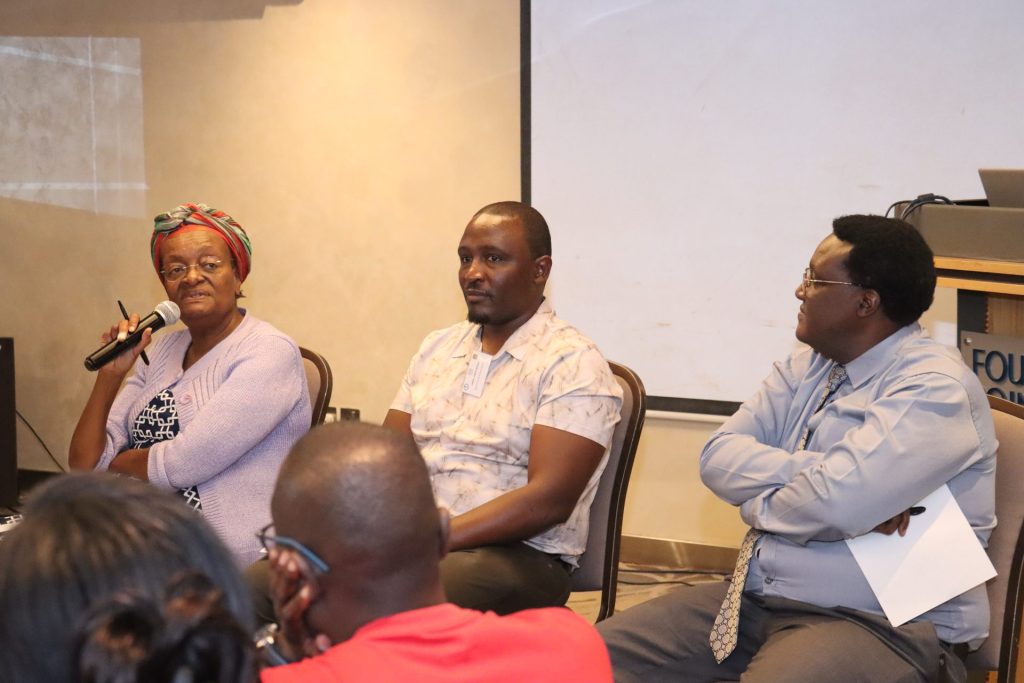
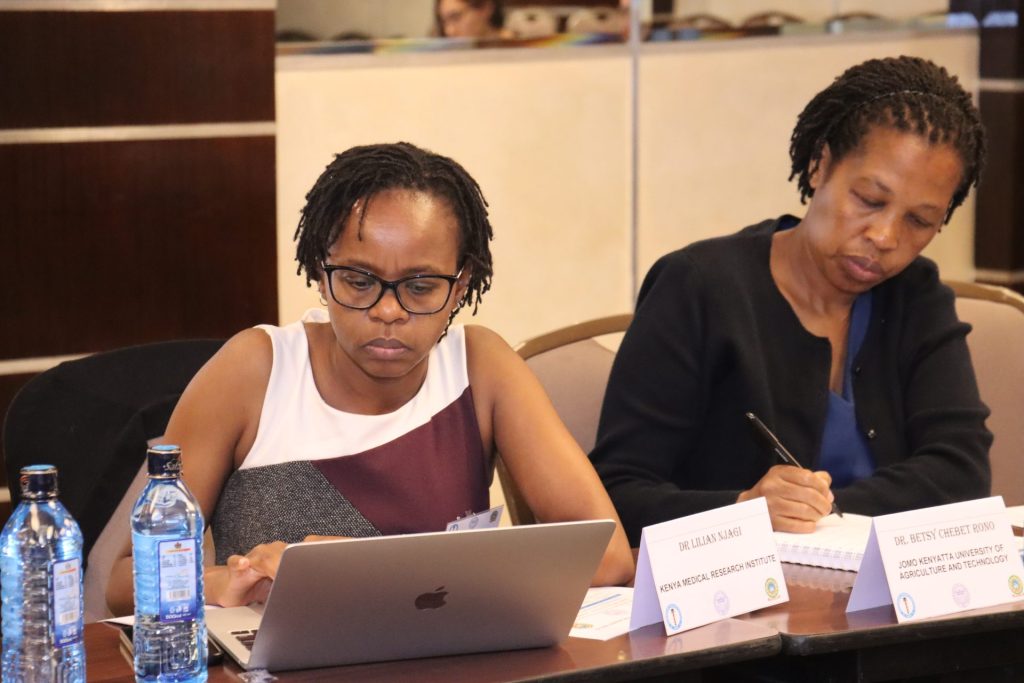
Additionally, the panel comprising distinguished grantees such as Prof. Ruth Nduati from the University of Nairobi (UoN), along with Prof. John Kinuthia and Prof. Cyrus Mugo, both from Kenyatta National Hospital (KNH), encouraged the participants to accept criticism and reviewer rejections gracefully and to learn from them rather than giving up. “Take time to read the comments and respond objectively, in a way that addresses concerns and reinforces conviction,” they said, arguing that developing an open mind is essential for learning and growth.
On collaboration, young scientists were encouraged to embrace mentorship, with attention drawn to the importance of nurturing close working relationships with established scientists. They were also advised to strike a healthy balance between professional and personal life, given the intensive nature of a research career.
The workshop was part of KEMRI and its partners’ ongoing efforts to strengthen research and build sustainable capacity in grant acquisition and management through transformative initiatives like SITAWI.
SITAWI: Turning the Tide for Women and HIV is a tripartite collaboration between the Kenya Medical Research Institute (KEMRI), University of Washington and Jomo Kenyatta University of Agriculture and Technology (JKUAT that strives to build capacity to conduct locally relevant socio-behavioral and implementation science research that will have long- term benefits and contribute to ending the HIV epidemic in Kenya and sub-Saharan Africa.
